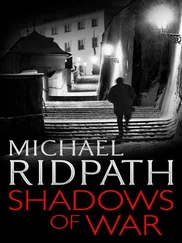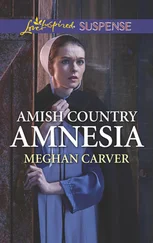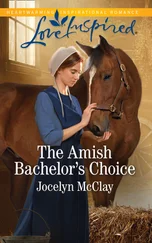I stopped short. Except I didn’t know that, I didn’t know that at all. I had no idea whether I had killed Sophie or not. How could I know? The last thing I could remember was striding off to confront her in a burning fury. Perhaps it wasn’t the killer who hit me on the head. Perhaps it was Sophie, while we were struggling. I knew that concussion was not necessarily a result of immediate loss of consciousness; it could kick in seconds or minutes after a blow had been sustained.
I sat on a flat stone on the bank of the burn, put my head in my hands, and wept.
When I returned to Wyvis Lodge, Stephen was being questioned in the library. Everyone in the drawing room looked grave.
‘What’s going on?’ I asked Nathan.
‘Stephen lied to the cops.’
‘What about?’
‘The stupid idiot said he didn’t go outside last night. He woke up, saw Sophie wasn’t there and searched the house. Trouble was, I had told the cops I heard him shouting and saw him on the lawn by the front of the house. And when the Fergusons’ son was setting off home on his bike, he saw Stephen in the garden. Then the police found a footprint in the boathouse which matches Stephen’s shoe. So now they are asking him some more questions.’
‘They can’t think he killed Sophie, can they?’ I said.
Nathan shrugged. ‘Jealous husband. It’s been known.’
It was remarkable that the footprint had matched Stephen’s shoe and not mine. Lucky. I considered rushing to tell the police that I had been in the boathouse with Sophie. But that would just put me in the frame. And it would hardly help Stephen: only give them a stronger suspicion that Stephen had discovered his wife having an affair with me. I certainly couldn’t disprove that Stephen was outside looking for Sophie. In fact, it sounded most likely that it was Stephen who had hit me over the head.
So I just stayed quiet.
They arrested Stephen. In due course there was a trial at the High Court in Edinburgh. Further forensic evidence was produced to show not only that Stephen had been in the boathouse, but also that that was where Sophie had been killed. She had been dumped in the loch a few yards away, and her body had drifted down to the woods. The post-mortem showed that Sophie had been strangled, and that she had had sexual intercourse just before she died. The police accused Stephen of that too.
I had testified at the trial. I had managed to tell the truth the whole time. No one asked me whether I had been in the boathouse with Sophie, which was a big mistake on the part of Stephen’s advocate; I had been unable to decide how I would respond if asked a direct question under oath.
Stephen’s story was that he had awoken, found Sophie missing, and had gone to look for her. He saw that the French windows out to the lawn were ajar, and decided she must have gone outside, possibly to meet me. He had blundered around the gardens, before noticing that the door to the boathouse was hanging open. He had found cushions on the floor there, but no sign of Sophie. So he had stumbled back to bed.
He said that he had initially lied to Inspector Dewar to avoid casting suspicion on himself. It had been foolish and he regretted it.
The prosecution had poured scorn on this, although it seemed perfectly plausible to me; it was pretty close to my own thought process after all. What really did for Stephen was his lack of interest in defending himself. Although he denied he had killed Sophie, it was a half-hearted denial. He behaved as if he deserved to be punished for her death.
He convinced me. I was pretty sure that it was Stephen who had killed Sophie, and had hit me over the head either just before or just afterwards. The prosecution alleged that Stephen had effectively raped Sophie before killing her. I knew that wasn’t true, but it was for murder Stephen was on trial — marital rape was not a crime — and it was for murder that he deserved to go to prison.
That’s what the jury felt. Fortunately, the offence was classified as ‘non-capital homicide’, and Stephen was sent to gaol for the rest of his life, rather than to the hangman.
Part of being a good GP is being able to listen to your patients and to listen closely. I was normally very good at all that, but two weeks after Stephen had been sentenced I was in my surgery listening to Mrs Watkins, the seventy-year-old lollipop lady at the primary school, explain the mysterious pain in her side, when I realized that I had taken nothing in. I played for time, reaching for my stethoscope and asking her to lift her blouse up for me, but I was as worried about me as about her. Concentration was becoming impossible, my thoughts these days were constantly diverted from my work and my patients to the loch and the trial, to Sophie and Stephen.
Like Stephen, I felt dead inside. Now Sophie was gone, life had lost much of its purpose. Part of me blamed Stephen — I told myself I was convinced that Stephen had killed her — but part of me, a part that I wouldn’t recognize even to myself, forgave Stephen. I felt so guilty myself. If Sophie and I had continued to show restraint she would still be alive. Stephen’s suspicions had been entirely accurate. Of course Stephen was wrong to kill her, and I would be wrong to forgive Stephen. And yet...
There was something else. I was not completely sure that I hadn’t killed Sophie.
And, as time went on, I came increasingly to believe that I had.
The dreams started a couple of months after Stephen’s trial. Sophie was naked in the boathouse and I was on top of her. But I wasn’t making love to her; I had my hands around her throat.
The dreams changed and varied. She struggled. She hit me with an oar. I dropped her into the loch.
Then the dreams appeared during the day. I would be waiting for my next patient in my surgery, and I would suddenly see Sophie beneath me, my fingers around her neck.
These weren’t dreams. They were memories. The fragments coalesced, until about a year after Sophie’s death, I was convinced that I had killed her.
The knowledge shattered me. The morally courageous thing to do was to tell the police, but my moral courage had long gone. I tried to continue at my practice in Knaresborough; I was as safe or unsafe there as anywhere else, but I couldn’t.
I woke up at five one morning, after a particularly vivid dream. There was a copy of The Lancet on my bedside table, open at the classifieds at the back. My eyes fell on an advertisement for British doctors wanted in Western Australia. I got out of bed right then, and sent off the application. Three months later, I found myself aboard RMS Strathaird , bound for Fremantle.
But Sophie lingered in her little patch of ground in the de Parzac churchyard in the Loire, and Stephen in his cell in Wormwood Scrubs.
And I knew I had put both of them there.
Although this book is closely based on fact, I have decided to call it a novel. Certain details have been changed and omitted, and some dialogue has been invented. But the essential truth remains: Stephen Trickett-Smith did not murder his wife at Wyvis in August 1959. I believe I did.
The years since then have been a nightmare for me. Every day I think of Sophie and my part in her death. Every day I think of Stephen in prison somewhere in Britain. I have built a new life here in Australia, I have married a woman who knows nothing of what is written here, but I have learned that it is impossible to build a new life without recognizing and accepting what happened in the old one.
I don’t know if I believe in heaven or not. But I do know that I believe in hell, and I am living in it. As anyone who has read this book will agree, that is exactly where I deserve to be.
Almost two years ago, I wrote a tentative letter to the police in Dingwall, suggesting that there might have been a miscarriage of justice. Their reply gave me the strong impression that they would prefer to let sleeping dogs lie. So I have decided to write this ‘novel’ in the hope that it might free Stephen from prison, and just possibly free me from hell. I may well end up in a British prison myself, but that is as it should be.
Читать дальше












